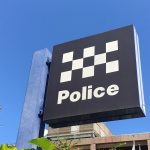Police Falsify Reports About Suspects

The NSW Council for Civil Liberties has called for improvements in the audit trail of the state’s police database. The same report also called for a change in the way police interact with the system, and for police “to be more sceptical of the database.”
The COPS (Computerised Operational Police System) database is used by police to track information related to suspects, complainants, reports and incidents that require police attention. It facilitates the logging of incidents, describing of events, gathering of intelligence and issuing of charges.
The system was implemented in 1994, but police were recently granted $44.8 million by the state government for its modernisation. The Council hopes part of this process will include the creation of an audit trail, saying a record of “who viewed and amended records is needed, to ensure that changes to entries can be monitored over time.”
The Council points out there is currently minimal oversight, which has resulted in enumerable erroneous entries and breaches of data privacy.
According to the report’s authors:
“A real danger exists if there are inadequate checks and balances within the system. The fundamental concern is that the database and entries be accurate. There are many cases of people being subjected to stop and searches based on the database, where the database is wrong.”
Why Is This a Concern?
The threshold for inclusion on the database is very low; for example, a person giving information about an assault would likely have their details entered on it. People do not have an automatic right to access the information held about them on the system, or assess whether it is correct.
For example, a 2006 review into the use of drug sniffer dogs revealed police had falsely recorded a man admitting to “frequent use of marijuana” after stopping he was stopped in a Thredbo shopping centre. But the man had never admitted to drug use, instead telling officers ‘It’s Saturday night in Thredbo… there are drugs everywhere.’ (p. 103). There are reported to be similar errors throughout the current database.
The Council’s report raises concerns about the impact of these incorrect entries on people’s lives:
“being entered into the database can result in extra police attention. There have been cases of people being accused of breaching their bail conditions because of out-of-date entries. This has resulted in those people being arrested, taken into custody, searched and placed in a cell…. For some young people this has happened more than once. In one instance it happened to a young person three times in 15 days.”
The Council is also concerned that COPS entries are increasingly being tendered as evidence during criminal trials. Additionally, section 33 of the Evidence Act allows police to refresh their memories from their statements and their own COPS entries, despite the lack of checks and balances to ensure the latter are properly made. The report warns: “… this is fundamentally a process where police are able to put their case together and share it. It was observed that the COPS record often becomes the authoritative version of the police’s view of events.”
From Criminal Lawyer to Suspected Terrorist, Police Falsify Report
In 2008, lawyer Andrea Turner was arrested after a senior constable thought she had taken a photograph of herself and a colleague on a train.
When questioned, Ms Turner denied taking a photograph but pointed out it was not an offence to do so. Suspecting her of being a terrorist, police officers arrested and dragged Ms Turner off the train at the next stop, detaining her on the platform for 30 minutes before releasing her without charge.
Police did not pursue the matter or formally record the incident in the police COPS system – until Ms Turner called the police station to complain about her treatment.
In response, the arresting senior constable attempted to protect herself by falsifying a COPS report to allege Ms Turner had been reasonably suspected of committing a terrorism offence. Logging into COPS, she wrote ”It should be noted that at the time of dealing with the person of interest police were unaware of the exact offence. It is an offence to take photos on railway property under the new terrorism laws.”
In the end, Ms Turner won a claim for damages for wrongful arrest, and the police in question were reprimanded, although they did not face criminal charges. In the absence of reform and a proper audit trail, the hole is wide open for such ‘amendments’ to occur without oversight.






